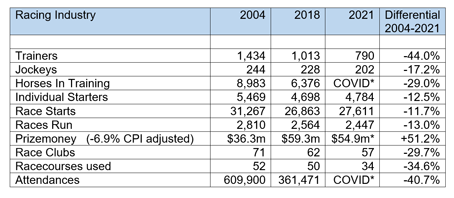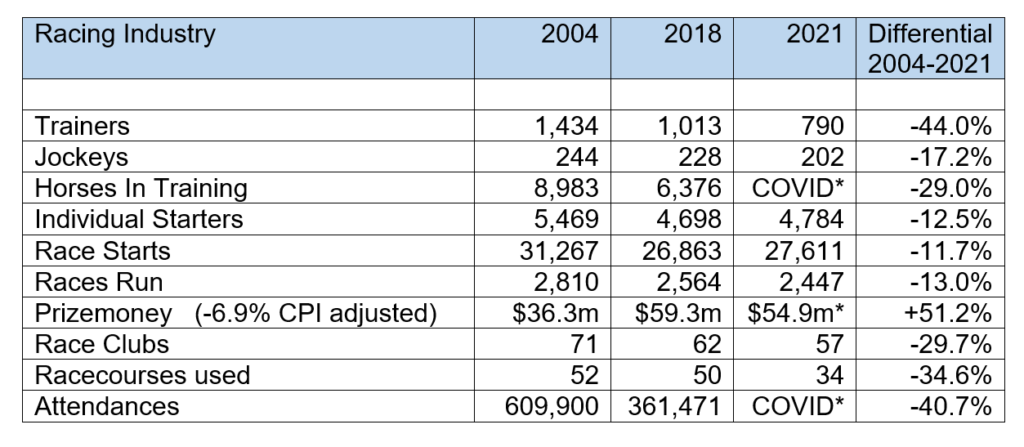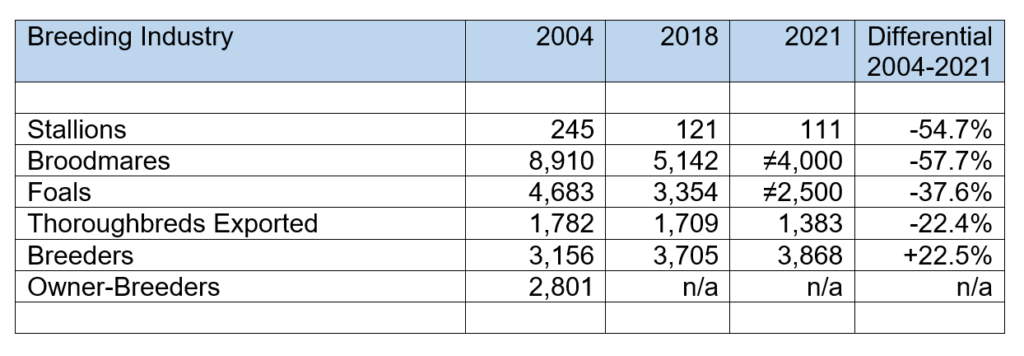This lone fisherman’s take on the new TAB CEO appointment cleared the early morning mist before a successful catch
by Brian de Lore
Published 20th January 2022
TAB NZ’s Monday announcement of its new CEO revived memories of more than seven years ago when John Allen’s name occupied the press release as the new CEO of the New Zealand Racing Board (NZRB), name-changed to RITA in 2019 and now known as TAB NZ.
The obvious common denominator between John Allen and the appointment of new man Mike Tod is no wagering or racing knowledge. The similarities go deeper in that both gained the appointments from new boards with chairs possessing no wagering or racing knowledge.
And those chairs, Glenda Hughes then, and Mark Stewart now, have come as selections from Ministers of Racing, Nathan Guy and Grant Robertson respectively, two politicians from diverse backgrounds but with scant understanding of the business and certainly no wagering or racing background.
Seven years ago, the Guy, Hughes, and Allen trifecta proved financially crippling. Against all industry advice, they exhausted all available industry cash reserves and guided racing recklessly into massive debt and insolvency, and then they left to do other things. Recently it has come to light that the same team turned down a massive offer for partnering in 2017 without consulting the industry.
The new seven-year cycle trio of Robertson, Stewart, and Tod couldn’t possibly do worse, but history is against them turning around an industry with a multitude of problems of which they have a meagre understanding. It’s the not sticking to your knitting senario, having no skin in the game, and repeating failures – revalidating Einstein’s definition of insanity.
The view of the lone fisherman
Repeating those criticisms brings on more delirium for this writer. Better to seek an independent opinion and ask a thinking lone-fisherman with a lifetime of racing experience both here and in Australia; a man who fully understands the vagaries of the TAB and its strengths and shortfalls; a man with an ability to clear the fog and articulate his thoughts with clarity; a man who in his time would have made an ideal CEO of the TAB.
His name withheld for obvious reasons, but for this blog, let’s call him Sherlock Holmes due to his extraordinary skill in ‘detection,’ an adroitness he uses primarily today to seek out Snapper, Kahawai and Kingfish in our better fishing waters.
On Monday, I emailed the press release to my fisherman friend, Sherlock, and asked if he had any thoughts?
“What gets me is this sort of stuff” – fisherman
Sherlock aimed his first retort squarely at the language: “What gets me is this sort of stuff . . .’deeply customer-centric leader with extensive experience in key areas of focus for our organisation, including product and service innovation, marketing, brand and consumer engagement. His appointment and those areas of focus will allow us to drive further revenue growth for our racing and sporting stakeholders.’
“I have never in my entire life (and I’m three-quarters of the way to a century) heard anyone talk like this. It is as removed from everyday English as a passage from Hamlet. But Shakespeare’s works are confined to the stage. This Stewart fella is writing a press release. Can he not communicate with racing people in their own language and manner of speaking. Why this bureaucratese, this gobbledegook? My guess is that it is designed to obscure rather than illuminate.”
The full press release may be found at: https://www.tabnz.org/tab-nz-appoints-mike-tod-new-ceo
But what about Tod’s long list of jobs, I asked Sherlock?
“Yes, you are correct to bring up Tod’s constant changing of jobs. If he was a whiz at TVNZ, Fonterra, and Air New Zealand, why is he not now on a path to become CEO of one of those organisations?
“He’s a non-racing person in an industry where everybody involved has to be committed to the sport. Unlike air transport, banking, television and dairy produce, there is no reason for racing to exist. That it does exist comes down to its participants being passionate about it. Their lives would be empty without it. It’s their faith.
“On that faith note, all the great religions of the world insist that their Popes, Archbishops, Grand Muftis, Dalai Lamas and so on kick off their careers at the basic entry-level and work their way up. The military — another area of life that people join because of their love of the life it provides — is strict about this, too.
“On a brighter note, a Harvard Business School education would have contained lessons on how to keep a bureaucracy — which the TAB undoubtedly is — lean and streamlined. Here’s hoping Tod was focused on the days those lectures were given.”

The Sherlock Holmes observation that racing needs a commitment, and racing exists only because of the passion, poses the next question – do the mainly non-racing, non-passionate people now running racing see it as dispensable with sport increasing its percentage of turnover and increasing its share of the pie?
When Mike Tod arrives in March, he will discover the TAB’s best period of profitability in recent times came when NZ racing went into lockdown, during which time betting turnover rose but the industry saved the distribution of prizemoney until racing recommenced.
Another worry for all racing today is the government threat of banning greyhound racing in New Zealand (like the ACT in Australia). Twice now, the industry has received a ministerial warning on animal welfare issues, and in this ever-increasing woke-world of political correctness and increased polling by the Greens, who knows if the dogs will go to the dogs.
After banning greyhounds, the nutty animal activists would then come after the horse industry in increased numbers. The non-racing, mercenary graduates of the Directors’ Institute that currently dominate racing’s administration might not care if a new TAB business plan identified NZ greyhound racing as dispensable and could have a replacement in waiting in the form of other overseas betting mediums.
Racing has no reason to exist other than a passion for horses
Sherlock the fisherman has reminded us that racing has no reason to exist other than its participants’ love of horses and their passion for racing them. But the game has declined, and the divide between the participants and the game’s administration has created increased tension, especially in light of unsustainable increased running costs at NZTR.
Very little information has flowed from TAB NZ to interested parties since the new board took control on August 1st. The codes have failed in their duty as specified in the Act to draw up a commercial agreement, take it to TAB NZ, and stop the tail wagging the dog. Yet, the legislation will be two years old in July.
The TAB supposedly acts as a service provider to the racing -The Racing Act 2020, clause 57 says: The objectives of TAB NZ are—
(a) to facilitate and promote betting; and to maximise—
(i) its profits for the long-term benefit of New Zealand racing.
But that isn’t happening; administrators ignore the legislation at their convenience, and the codes collectively have failed to come together for a show of strength and invoke the part that would devolve the power base.
Instead, NZTR concentrates on compliance issues. This past Monday, a party of six NZTR employees went Air NZ to Christchurch and Dunedin (at what cost?) to preach regulatory changes to horse trainers about coming restrictions on the issuing of trainers’ licences. Is this just another exercise in increasing bureaucracy while adding no value to the racing product?
While NZTR sweats the small stuff, the TAB hasn’t changed its ways. Why, for example, in its 2021 annual report notes to the financial statement, does it say on page 43, “$16 million relates to TAB NZ general cash funds invested in term deposits as part of TAB NZ’s normal investment strategy.
The TAB has never had a financial strategy (or should it have) to invest funds – they have simply made that up as an excuse to withhold funds for uses other than distribution to the codes for prizemoney.

TAB NZ is a body corporate, not a private investment company acting for shareholders. And under the influence of this government, it has made less than a wholehearted effort to maintain an equilibrium for a sustainable racing future – a blight on all those involved.

Most people involved, including the Racing Minister and the majority of the TAB board, will not understand the meaning of a sustainable racing future – they are simply not au fait with the real issues confronting racing to point this failing business in the right direction.






